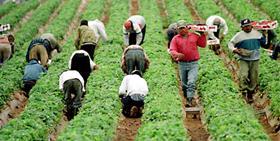
Australian industry group the Voice of Horticulture (VoH) believes a decision by the country’s federal government to resettle 12,000 Syrian asylum seekers could be beneficial to the sector.
VoH chair Tania Chapman said the horticulture industry was reliant on seasonal workers, including both backpackers and those on temporary work visas, with future waves of asylum seekers potentially adding to this workforce.
“The industry is worth about A$10bn at farm gate and while mechanisation of the industry is increasing, pruning and harvesting is still labour intensive,” she explained.
Orchards across Victoria’s Goulburn Valley have benefited from migrant workforces over recent times, with asylum seekers from Iraq and Afghanistan making significant contributions to the local industry, according to Craig Boyce, chief executive of pipfruit and stonefruit consortium Integrity Fruit.
“Middle Eastern workers have distinguished themselves by their work ethic, ability to pick up and apply skills as well as their commitment to the industry,” Boyce said.
The Australian horticulture industry currently employs more than 60,000 people and with production forecast to increase significantly over the coming years, the demand for full time and part time workers is expected to increase substantially.
The Voice of Horticulture has discussed the need for increased flexibility in the minimum hours worked in relation to 417 (working holiday) visa workers, as well as the possible introduction of a green card system to promote increased transparency and traceability of imported seasonal workers.
John Dollisson, chief executive of Apple and Pear Australia, said the horticulture sector has traditionally been very accommodating of new migrants and has provided the industry with a well-needed supply of pruning and harvesting skills.



